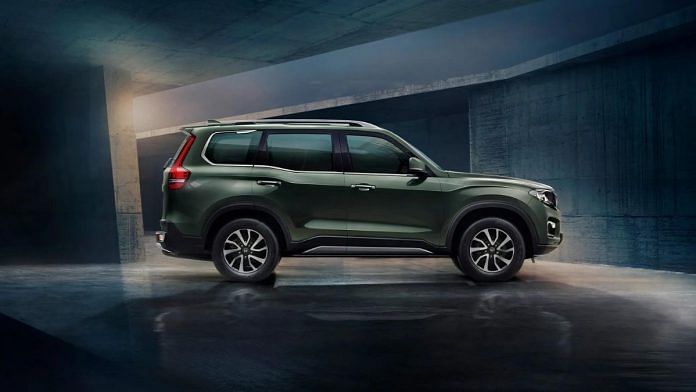Recently, during the Australasian New Car Assessment Program tests, the Mahindra Scorpio-N scored ‘Zero Stars’ for safety. On the face of it, this seems horrible, but a closer look at the report reveals that the sole reason for the Scorpio-N’s dismal rating is the absence of ‘Active Safety Systems’. The use of such systems is now mandatory to achieve even a single star in ANCAP, aligning with the European NCAP where such systems are obligatory for all new cars. In fact, Euro NCAP now requires new cars to demonstrate a degree of cyber-security as well. The recently introduced BNCAP in India, with the Tata Harrier and Safari as the first vehicles tested—and both scoring five-stars—does not mandate Active Safety Systems.
This brings me to the refreshed Kia Sonet that I recently drove in and around Bhopal, a city I believe is criminally underrated, but that’s another story. This car, which has propelled Kia to the league of India’s top carmakers, is now equipped with Advanced Driver Assistance Systems (ADAS). While I have covered this in previous columns, returning to the safety tests mentioned earlier, one of the ADAS systems is Automatic Emergency Braking (AEB). Car manufacturers may euphemistically describe it as Collision Warning or Collision Mitigation, but these are automatic braking systems, and they are becoming increasingly common.
In fact, carmakers like MG, Honda, Hyundai, Kia, and Tata have realised that buyers want such features, despite many message boards and online car comments being filled with complaints about ADAS, particularly emergency braking. Yes, one needs to get used to them, but I’m not sure if they should be made mandatory. Requiring ADAS or AEB to score even a single star on safety tests effectively makes it mandatory. The Scorpio-N scored decently for adult protection and a great score for child protection in the ANCAP test, yet it received nothing in the overall score. If a car is structurally safe, it should receive a score.
On the other hand, the Hyundai Verna, one of the last cars tested by Global NCAP under ‘Safer Cars For India,’ scored five stars and was praised for its gamut of safety aids. However, it was also noted that the ‘structure’ of the car was ‘unstable’. Detractors of the carmaker seized onto that word, although the ‘unstable’ term determines the amount of damage a structure has undergone. NCAP tests are conducted by smashing a car into a static object or a pole at a predefined speed—64 kilometres per hour in Bharat NCAP and Global NCAP. An ‘unstable’ structure might mean that while a vehicle passed a test at a certain speed, it might not fare as well in a higher-speed accident. That said, it is rare for a car with an ‘unstable’ structure to get a top score, but having ADAS and other safety features puts the car above the top.
Also read: India can’t prevent road accidents but it can reduce fatalities—advanced tools, trauma care
The issue with AEB
But here lies the problem: I’m not convinced about AEB. Yes, I have to increasingly live with it, but after reading complaints from many users of vehicles with automatic braking, many carmakers are now making it easier to reduce the sensitivity of such systems. Why are users upset? Well, as I have complained in these columns in the past, given chaotic Indian road conditions with pedestrians and other vehicles darting about and with little lane discipline, emergency braking and even Lane-Keeping Assist (LKA) can be overwhelming. The constant risk of a vehicle behind you smashing into your rear-end is omnipresent. Additionally, a 2022 Euro-NCAP testing video of AEB systems on various modern vehicles I recently saw on X made me doubt the efficacy of such systems on many new vehicles.
While driving the Sonet recently, I spoke with veteran automotive journalist Bertrand D’Souza, and he argues that the only way forward is for “All new cars to feature automatic braking, but it is going to be a challenge because these systems are expensive.” In fact, Maruti chairman RC Bhargava has often complained that mandating safety systems such as six airbags on cars will only make them less affordable. This is evident in sales charts as well, even for carmakers like Maruti, which has seen sales of hatchbacks decline sharply. Only entry-level variants of the Maruti Alto and Renault Kwid have an ex-showroom price of under Rs 5 lakh today.
However, D’Souza has a point. It is almost inevitable that such systems will become mandatory on cars in India sooner rather than later, especially as the Bharat NCAP testing norms evolve. In fact, the cyber-security mandate by Euro-NCAP might also be needed by Bharat NCAP. Just like emission norms converged across the world, so too will safety norms. But as Bhargava says, much more needs to be done to improve overall traffic conditions rather than mandate expensive safety systems for the time being.
@kushanmitra is an automotive journalist based in New Delhi. Views are personal.
(Edited by Prashant)




I am confused – is this opinion or reporting. If opinion then why play both sides of the argument? And if NCAP is flawed to top rate a car with structural issue then say NCAP is flawed in black and whit